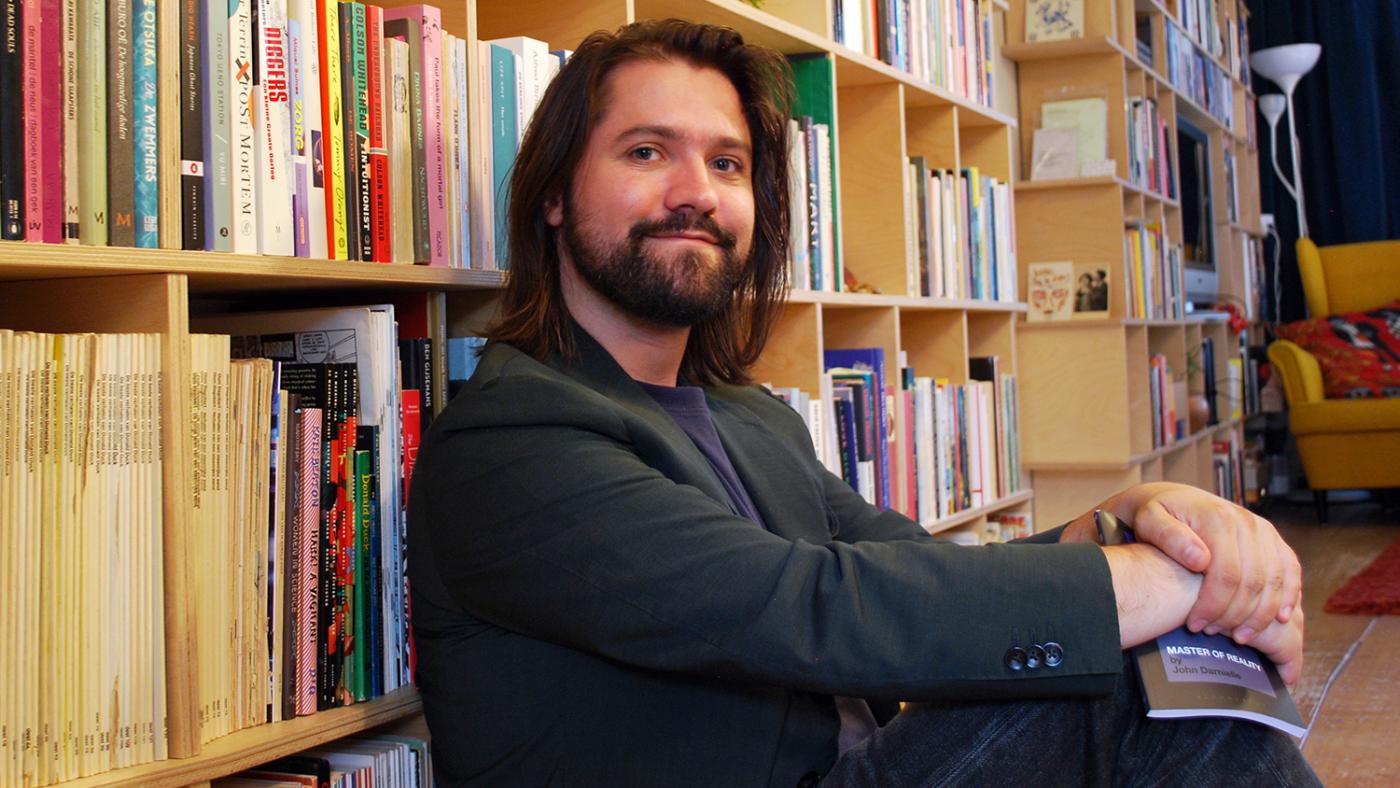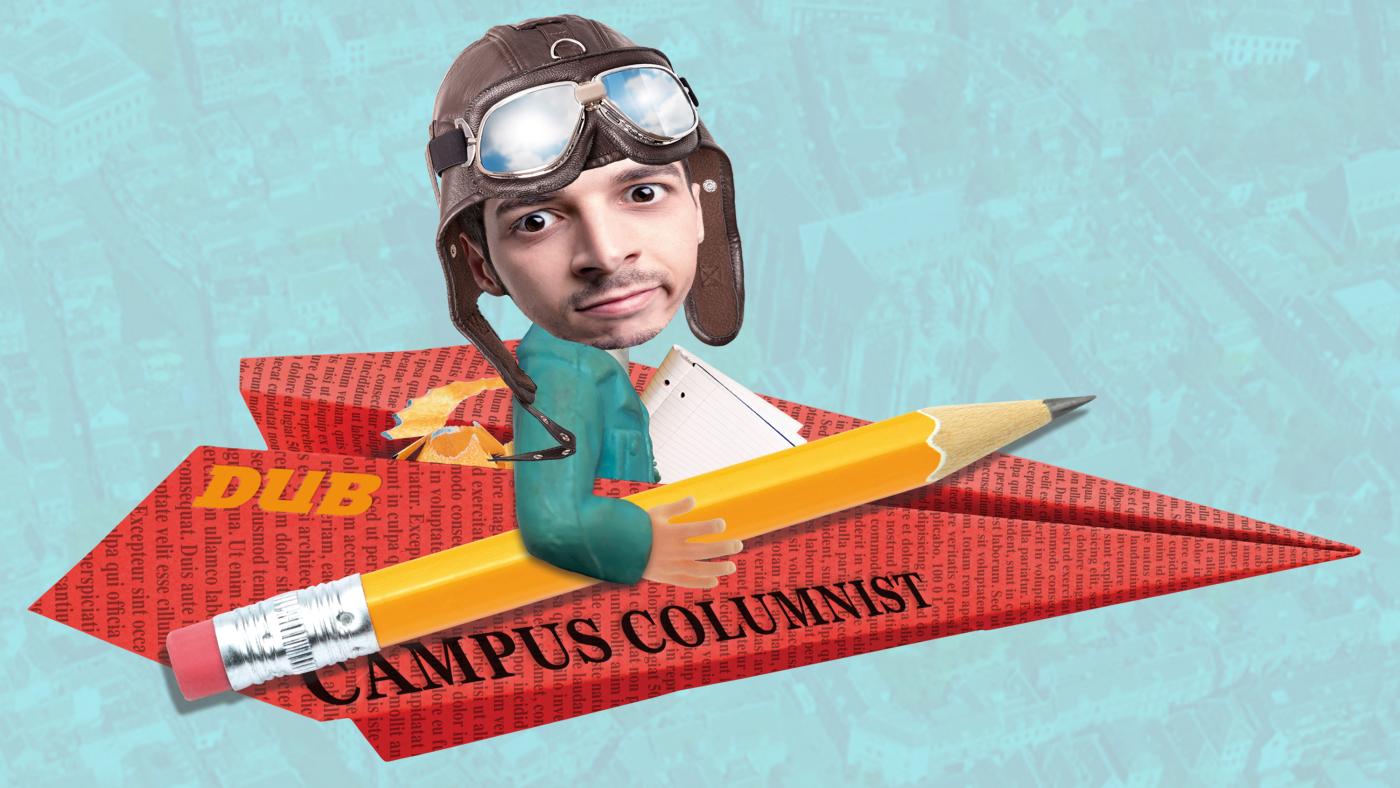From UU student to writer
‘Finish your piece and new ideas will come’

Max Urai (1991) used to write movie reviews and scripts when he was pursuing a Bachelor’s degree in Theatre, Movie and Television Science at UU. But once you’ve finished a script, it still needs to be produced and Urai didn’t want to do anything else but write. “When I found out about that side of myself, I threw myself onto prose. I started creating more and more stories but I didn’t do anything with them. Where was I to go? I had no idea. That's when I enrolled in the Art Academy, looking to get a bit more structure. The pressure was immense over there, they teach you what it is like to finish a new story every three months.
Since then, Urai has written many things, including a plea about activism in the Netherlands, which was nominated for a Joost Zwagerman essay prize. In this essay, Urai writes sharply and humorously about the lessons he as an activist. His body of work is political: an autobiographical essay talks about masculinity, gender and sexuality, for example.
How did your studies influence your development as a writer?
‘’The most important thing for me was having access to the library. There was this enormous cabinet filled with DVDs and even though you had no idea what type of movie it was, you could just grab it and watch it. You could either watch an unforgettable movie or the weirdest thing ever, perhaps even both in the same movie. That’s such a huge treasure. Watching those films stretches your understanding of life's possibilities.
‘’Another important lesson I learned during my studies was that it’s not just about the story, but also about how you tell the story. There are endless possibilities for how to tell a story, but it’s important to think about it. After all, if you write about what you’re feeling, that doesn’t necessarily mean those feelings will come across to the reader.”
The main purpose of your stories is to energise readers, wake them up, and give them the feeling that many more things are possible than they thought. Is that something you seek in literature yourself?
‘’Yes, those are the qualities of work I admire. But whether a story is good or not is a matter of taste, you cannot turn that into this whole objective idea. But if, for example, I read my own stories, the ones that give me energy are the ones I think are the best.’’
Your stories are quite personal, too. Don’t you find it scary sometimes, to share them with the outside world?
‘’Yes and no. It’s like when you’re making new friends and you meet someone you immediately feel a connection with. Then it only takes about five minutes until you’re ready to talk about your dreams or the darkest crevices of your browsing history. You can tell that, when you’re honest, that’s when things get interesting. It’s the same with writing.’’
You are currently working on your debut, a science fiction novel. Can you give us a hint about the story?
‘’It’s about shopping malls, the very first version of the story was called Laag Catharijne, so you can see where I got the idea. It’s about a world in which people walk into a mall, don’t pay attention for a moment and suddenly step into another mall. We follow people who decide to stay in shopping malls, form groups and move around. The story is about the rise and fall of that society.’’
Sounds interesting. Why did you choose science fiction?
‘’I’ve always thought it was a cool genre, but I’d steer clear from it a bit because I assumed that nobody makes sci-fi. Yet that’s exactly what I started to appreciate later. Science fiction gives you the freedom to find out what type of realities could exist – incredibly cruel or rather lovely… I think it’s more of a challenge, it's more exciting than regular fiction. All of a sudden, you have to think about things like: how do people in a shopping mall bury their dead?”
Is there a political element to it as well?
‘’Yes, absolutely. That’s what’s so interesting about science fiction, you can think about politics outside the framework of what is currently being discussed. In the world of science fiction, characters have to think for themselves, other aspects of what it means to be human are central. The characters must go back to the question: who do we want to be?”
What does your perfect writing day look like?
‘’I work in a little hutch in the attic with a very old laptop I took the router out of, so it’s now become sort of an electric typewriter. Usually, I first go for a run or a bit of rowing and I always try to read about an hour or two before I start to write. I always have a goal for the day, finishing a chapter for example. Then I keep typing until I’m done. Sometimes it takes four hours, sometimes it takes all day.”
‘’I always have to work extremely long hours to completely get into that world. That place is so totally different. I have to really immerse myself in it.’’
You’ve also written a great article about getting started. Do you have any tips for young writers or columnists that are just getting started?
‘’In my view, the most important thing is to figure out what works for you. Another tip I can give: At some point, I created a file called ‘The dumbest ideas in the world.’ I thought: what is the dumbest thing I can think of? Then I came up with a story about a spaceship that was stuffed with fish. Allowing yourself to be incredibly dumb is usually a lot more liberating than trying to be very smart.’’
‘’People assume that, at a certain point, you just run out of ideas. But once you’ve written something, new ideas will automatically come up. Therefore, finish your piece so you can move on to the next one.’’
 DUB is looking for Campus Columnist 2024
DUB is looking for Campus Columnist 2024
DUB is looking for two columnists to join us in 2024! One will write for the Dutch page and the other for the English page. To participate in our contest, you must send two columns, which will be anonymised and submitted to a panel of experts. The winners will publish a column on our website every two weeks for a year. They will also get a 1,000-euro stipend each. The campus columnist is either a student or an employee of Utrecht University who shares their views and experiences about things that matter to the university community. To know more about our contest, click here.